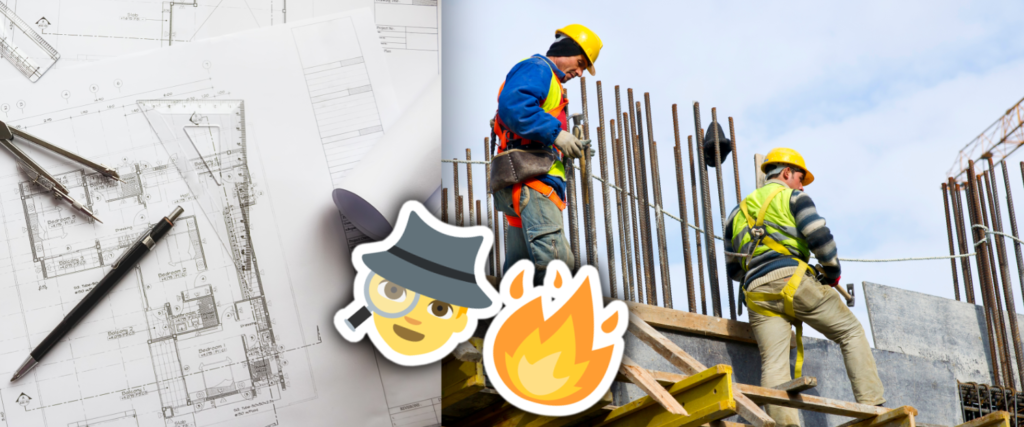The Legal Guide to Construction in Malta

Welcome to construction in Malta. If you are not aware, construction is one of Malta’s most prolific sources of income and employment, with many people working as self-employed contractors. But it also has its share of legal problems – like any other industry! This blog post will provide an overview on construction regulations in Malta including the governing bodies involved, what time you can work and to who you can report illegal activity.
Who governs construction in Malta?
The governing body over construction in Malta is the BCA (The Building & Construction Authority.
The role of the BCA is to;
– Create and implement policies.
– Compile and review rules and regulations.
– Set the minimum standards of the national building code for the construction industry.
The Building and Construction Regulations, deal with the building’s structural elements and establish the minimum requirements to safeguard third parties during construction operations. They also govern the implementation of engineering methodologies, in-building physical infrastructure, and building energy efficiency.
The construction industry in Malta is also regulated by the EU’s construction directives. It regulates certain construction products for safety and health purposes, such as machinery and building materials and equipment. The Maltese government adopted the Construction Products Regulation (CPR) which implemented this directive into local law with effect from January 2014.
The Planning Authority is also another governing body that regulates construction in Malta. This is to ensure that construction does not take place outside the parameters set out in national, regional and local development plans or strategic environmental impact assessment reports.
The construction industry is governed by very strict labour laws set out under the Employment and Industrial Relations Act (EIRA). The law applies to all construction sites, regardless of how big or small they are. This ensures that workers at construction sites can work with full dignity and respect.
Time Restrictions
Construction work can be noisy and inconvenient to neighbours, and therefore can not be done at all times. In recent years, construction sites have grown increasingly prevalent in Malta, contributing to significant noise pollution. In 2018, a study by MaltaToday revealed that 29.4% of individuals were affected by construction noise, compared to traffic (29.7%). Construction work can only be carried out between the hours of 07:00 – 20:00 Monday to Saturday.
If construction work is being done on a weekday night, outside of the given time restrictions, an application must be submitted to the BCA one week before. This can be done via email or through their website and should include details such as;
– Reason for working at night.
– Means by which construction will not cause any inconvenience to the public.
– Steps taken by construction site management to ensure construction workers are not being exploited or have their health and safety put at risk.
In addition, during the period from 15 June to 30 September, demolition and excavation operations are not permitted in tourist areas. This has been established by the Malta Tourism Authority.
Constructor Responsibilities
The Principal Designer oversees the project’s pre-construction stage, while the Principal Contractor is in command during the construction phase. This position should be given to a contractor with the necessary abilities, knowledge, and training to manage construction while ensuring that health and safety standards are met.
In addition to performing all of the usual functions of contractors, the Contractor is also responsible for the construction site’s safety and maintenance. This includes ensuring construction workers are not being exploited or having their health and safety put at risk during construction work.
The constructor’s duties also include engaging a qualified designer and ensuring that construction work has been properly supervised throughout the construction phase. This includes appointing site supervisors to ensure health and safety standards are being met during construction operations.
The contractor should also provide a list of employees who will be working on site to BCA.
Health and Safety Risks
During the construction phase of the project, the Contractor is required to consider all health and safety concerns that might develop. If construction work is found to be dangerous, the construction workers should not carry it out. All construction site accidents and injuries must also be reported in a timely manner
It is important that construction workers do not perform any task they feel might put their safety at risk or make them vulnerable in any way. This includes working with toxic materials without proper protection, or construction activities that involve working at heights.
If construction work is deemed too dangerous, or construction workers feel they are being exploited by their employer it can be reported to the BCA.
Client Responsibilities
- Appoint qualified people: construction site managers and construction workers should be properly trained to carry out their tasks. Make sure those working on the construction site are not being exploited; it is important that construction companies do not hire construction workers illegally under any circumstances, as this can lead to exploitation of labour laws.
- Communicate and co-operate: If you want to ensure that your construction team will be able to design and build something safe, durable, and dependable, be sure to provide them with crucial information. They’ll require knowledge of what you want, how you plan to use it, the site’s conditions and existing structures or hazards like asbestosis.
Reporting illegalities
You may report to the BCA in the following address if you believe any of the above rules are being violated at a construction site;
Physical address: Triq il Kavallier ta’ Malta, San Gwann SGN 3000 or send an email to construction@bca.org.mt
Conclusion
The construction industry is one of the most important industries in Malta. Construction work is done by both Maltese nationals and Foreign workers, all who deserve to be treated fairly. Important information about construction regulations must be known so that people can perform their tasks accordingly without any risks or concerns regarding how they are being managed on construction sites.